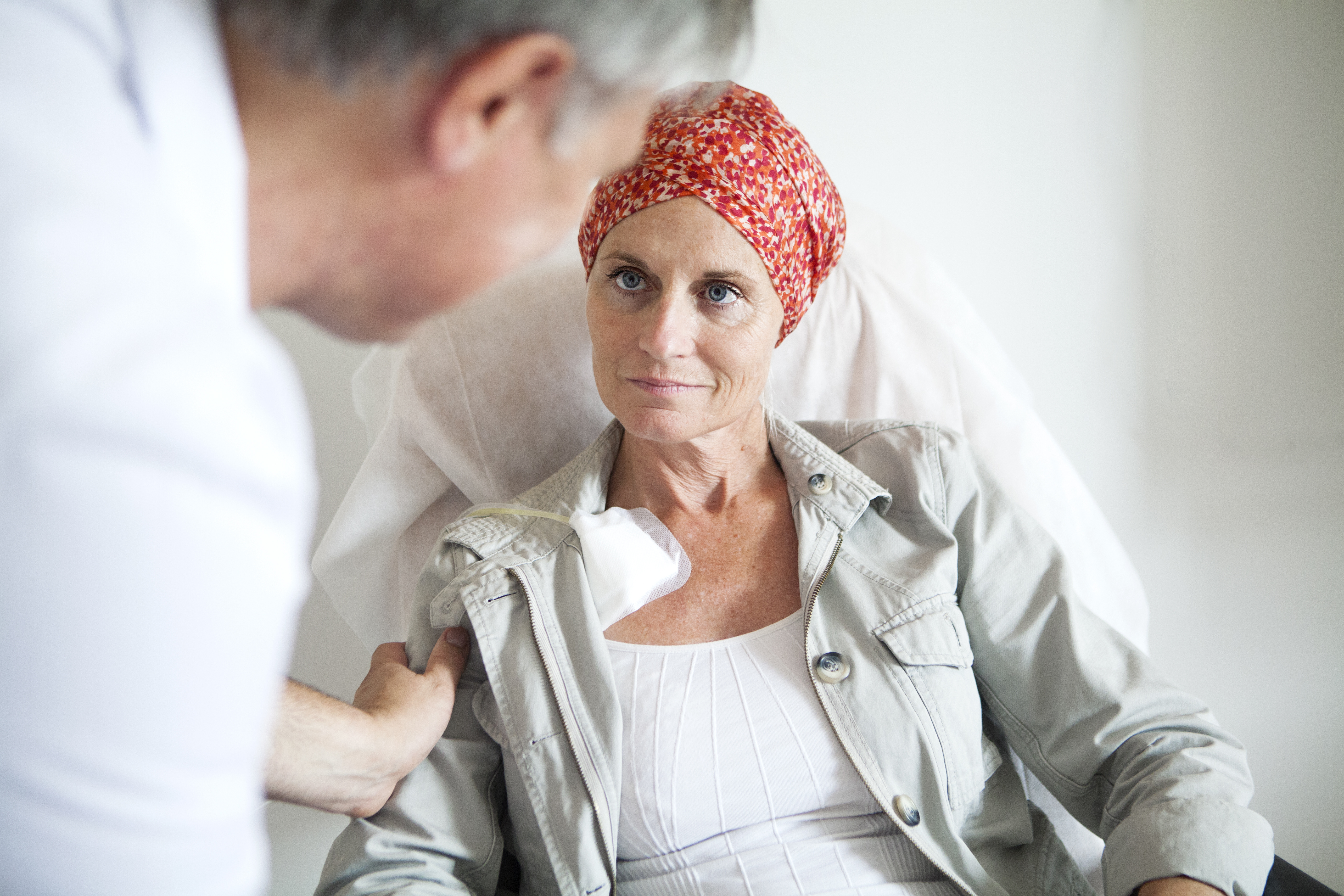Diagnosis and treatment
Breast cancer is the development of a malignant degeneration in the breast gland tissue. Internally, the breast consists mainly of glandular, binding and fatty tissue. The glandular tissue contains about twenty mammary glands, each of which has a channel under the nipple and is separated by connective tissue partitions.
Early detection
Early detectionIn order to be able to notice a change in a timely manner by yourself, it is a good idea to check your breasts regularly at any age.
There are several starting points:
- A suspicious lesion on the mammography
- A lump in the breast or skin retraction
- Nipple loss (with or without mass)
- Skin lesion (Paget) of the nipple (with or without mass)
- Swollen glands in the armpit (possibly without obvious breast tumour)
- Inflammation of the breast, with or without mass
Feeling a lump or seeing an abnormality on the mammography will be the start for 'further investigation'. In order to arrive at a well-defined diagnosis, it is important to take additional clarifying images and examine the breast tissue. Once the diagnosis has been made, the attending physician will determine the stage of the tumour based on additional stage exams.
Read more about the (self)tests that can be done for the diagnosis.
Which treatment to follow
Which treatment to followNot every patient receives the same medical treatment. It all depends on the type of cancer diagnosed, the degree of cancer (degree of malignancy), the stage of cancer, the scientific evidence of the effectiveness of the treatment for this type of cancer and your general state of health. Your physician will take stock of everything to choose the treatment best suited to your case.
You will find an overview of possible treatments here.
Psychosocial counselling
Psychosocial counselling
In case of a serious, life-threatening condition, you sometimes need additional help. Cancer catches people off guard and affects their 'life' in its totality. You need a listening ear.
- Our Oncology Support Team is there for you, your family and other people close by. Our support team offers you psychosocial support in all areas. Conversations and counselling can take place both during and after treatment and are free of charge. You will find support from the oncology coaches, oncology psychologists, pastoral workers and social workers (more information under team).
- Each patient also receives a communication booklet, which forms the bridge between the patient, the GP and the attending oncologist. The intention is that the patient has the booklet with her every time she comes to the hospital for consultation or treatment.
- You can also join the sessions 'Look Good, Feel Better', organised by ‘Fight against Cancer’.
Nutrition
NutritionNutritional problems may also occur during treatment. For each malaise complaint, you will receive nutritional advice and tips. During treatment, you should also keep the weight at the right level. Weight loss is counteracted. Adequate nutrition becomes a priority. The rules of the active nutrition triangle change according to the nutritional situation. Complementary high-calorie drinks can compensate for nutritional deficiencies and prevent weight loss.
Our dietitians will be happy to help you (more information under team).


